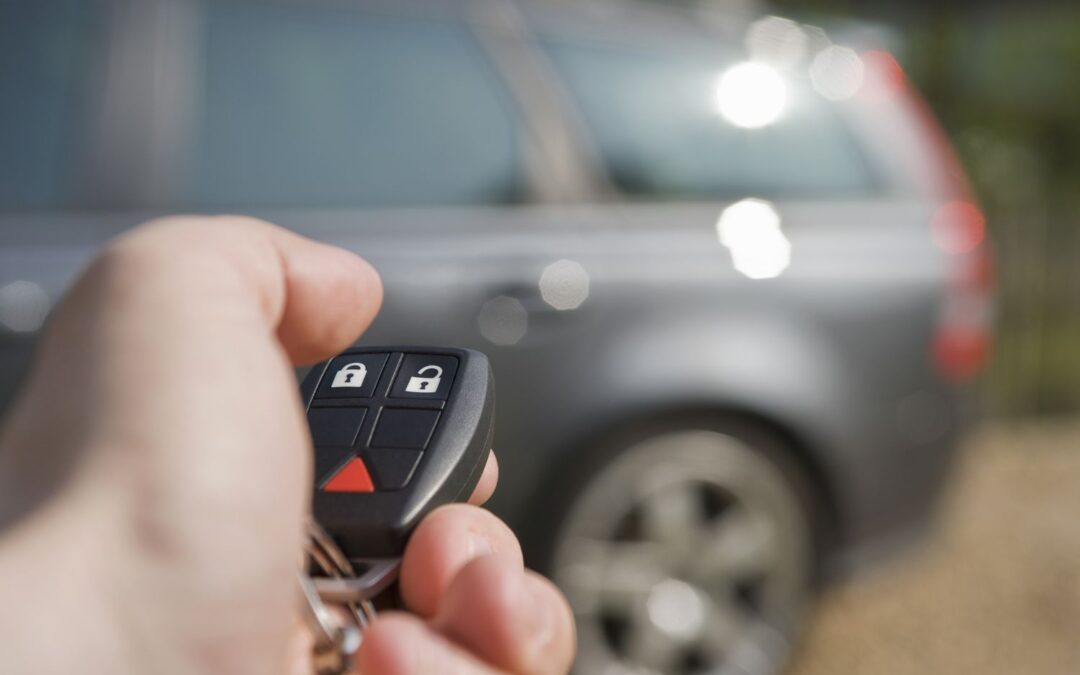Smart keys and passive entry systems make life easier. You walk up to your car, and it unlocks without touching a button. Sit down, press start, and you’re on your way. But while this technology feels seamless, many drivers ask: how safe are these systems? Can criminals exploit them with relay attacks or signal interception?
How Smart Keys and Passive Entry Work
Unlike traditional keys, a smart key fob communicates with your car using radio frequency signals. When the fob is close enough, antennas in the vehicle verify its presence. If the system recognizes the correct encrypted code, it unlocks the doors or starts the engine.
This setup offers speed and convenience, but it also creates opportunities for hackers who know how to manipulate signals. That’s where questions about security come into play.
For example, many newer vehicles can detect a fob several feet away, meaning you don’t even need to take it out of your bag. While that makes life easier, it also extends the window of opportunity for thieves if signals aren’t properly secured.
What Is a Relay Attack?
A relay attack happens when thieves use two electronic devices to trick your car into thinking the key fob is nearby.
- One device captures the signal from the fob, even if it’s inside your house.
- The signal is then sent to another device held near the car.
- The car unlocks and starts as if the real fob were next to it.
Since the thieves don’t need to steal or clone the fob, this attack can be fast and quiet, leaving no obvious signs of forced entry. Many reports from law enforcement show vehicles stolen from driveways in just minutes using this method.
What About Signal Interception?
Signal interception, or “replay attacks,” involves capturing the communication between your fob and the car. Criminals then reuse or manipulate that data to gain access later.
Most modern systems use rolling codes that change every time, making simple interception harder. Still, advanced attackers combine jamming and replay techniques to exploit weaknesses in certain models.
A common trick involves blocking your signal when you press the lock button. You think the doors are secure, but in reality, they remain unlocked, giving the thief easy access.
How Real Is the Risk?
Research shows many car brands have been tested and proven vulnerable to relay devices. While encryption protects against cloning, proximity detection remains the weak point. If your fob is within range, criminals may exploit it without ever touching the key.
Insurance companies have noted an increase in thefts involving keyless entry systems, especially in larger cities where organized groups use relay kits. The kits are inexpensive and widely available online, making this type of attack more common than most drivers realize.
How to Protect Yourself
You don’t have to give up convenience to stay safe. Here are practical steps:
- Use a Faraday pouch or metal container to block signals when the fob is not in use.
- Keep fobs away from doors and windows so signals can’t be captured from outside.
- Check for car settings that allow you to disable passive unlock or adjust security modes.
- Replace or reprogram lost or stolen fobs quickly. Services like our Remote Fobs for Cars & Dealer Keys page can help with secure replacements.
- Stay updated with manufacturer recalls or software patches.
- Consider layered security. Visible deterrents like steering wheel locks or driveway cameras can make your car a less attractive target.
Should You Avoid Smart Keys?
No. For most drivers, the convenience outweighs the risk, especially when combined with simple protective habits. Smart keys aren’t unsafe by design—they just require awareness.
If your fob has stopped working, been lost, or you need an extra, make sure to use a trusted locksmith. Our Remote Fobs for Cars & Dealer Keys page explains how we can supply and program replacements for many makes and models.
Smart keys and passive entry systems have made driving easier, but they also bring new security challenges. Relay attacks and signal interception are risks worth understanding, yet with basic precautions—like storing your fob securely, using protective cases, and applying manufacturer updates—you can reduce exposure while keeping the convenience.If your fob is lost, damaged, or needs reprogramming, don’t wait to fix it. Affordable Lock & Security Solutions offers fast, reliable service to get you back on the road safely. Visit our Remote Fobs for Cars & Dealer Keys page for trusted replacements and programming that protect both your vehicle and your peace of mind.

